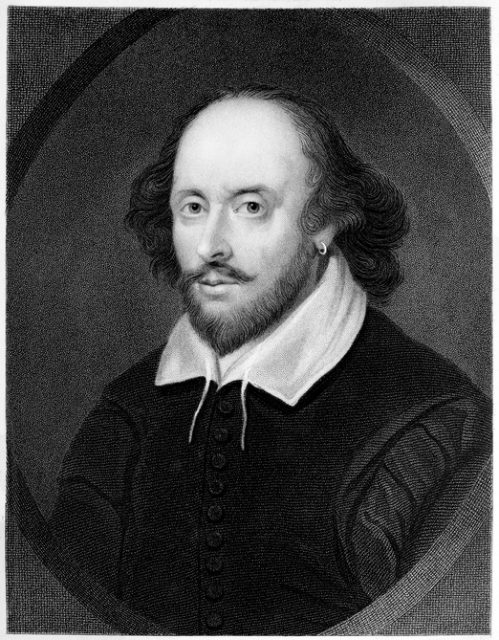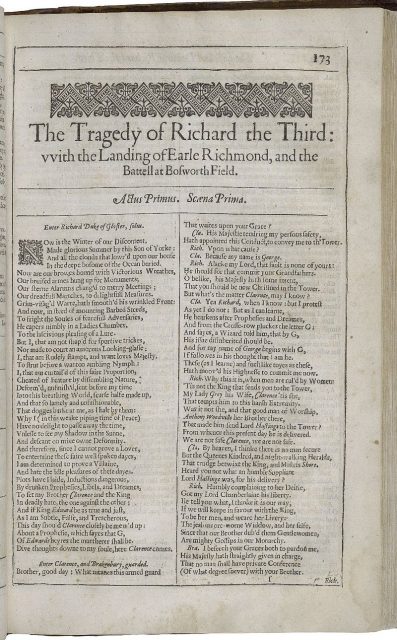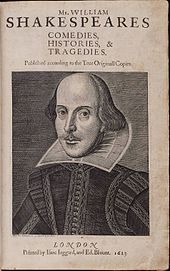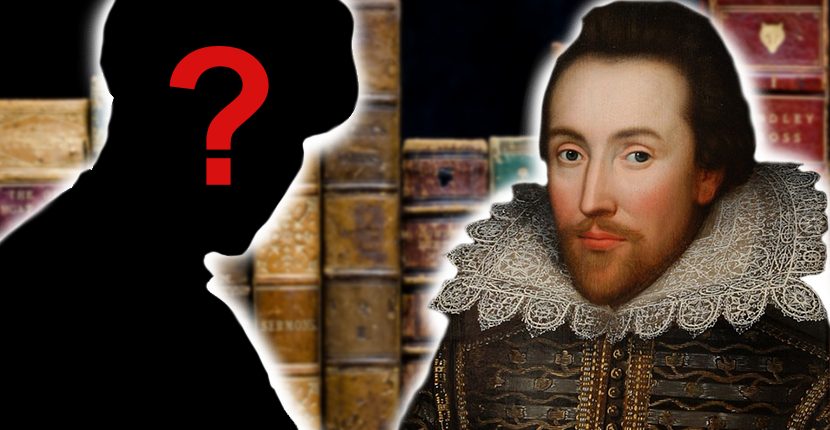Does anyone know who William Shakespeare is? Playwright, England’s national poet and the world’s genius, and the Bard of Avon? Yes, of course you do. How about George North? Anyone?
Crickets.
And yet according to a new academic book, Shakespeare made good use of the work of George North. Very good use. Shakespeare scholars Dennis McCarthy and June Schlueter fed a 1567 manuscript written by the little-known George North into WCopyfind, a web tool designed to catch college students plagiarizing, and when comparing North to the work of Shakespeare, found 20 matching passages, with echoes in King Lear, Richard III, Macbeth, Henry V, and several other plays.
McCarthy and Schlueter did not set out to shame William Shakespeare, but to research North’s work as a source of facts for the Bard. North’s manuscript was titled A Brief Discourse of Rebellion and Rebels, and while it’s clear that Shakespeare read it, now it is so obscure that no one seemed to have a copy of it.
McCarthy had seen only a description of North’s handwritten manuscript in a 1927 catalog of rare books as “an original and unknown work.” It took McCarthy and Schlueter a year to discover the book itself in the British Library, where it had been “filed under an obscure shelf mark,” according to the New York Times.

George North was a minor figure in the court of Elizabeth I, possibly her ambassador to Sweden, who was an ardent supporter of the aristocracy. The manuscript, which is “a diatribe against rebels,” was written at Kirtling Hall, the family estate near Cambridge.

One passage that echoed North’s book is Gloucester’s opening soliloquy in Richard III. Each contained “a tight juxtaposition of the same eight terms: glass, proportion, fair, feature, deformed, world, shadow, Nature.” McCarthy and Schlueter argue that Shakespeare not only used the same words in all of the similar passages used them in scenes exploring the same themes, and with the same characters.

For example, Macbeth’s comparison of men to certain breeds of dogs seems to have originally come from North. The use of the canine word trundle-tail is especially convincing, as an exhaustive search of sources shows it appears in only one other work besides North’s before 1623. A comparative study of North and Shakespeare brings clarity to the Fool’s mysterious reference to Merlin in King Lear, and “also upsets the prevailing opinion that Shakespeare invented the final hours of Jack Cade in Henry VI, 2.”
The book’s co-authors say that the chances of Shakespeare and North coincidentally using the same words and passages is “one in a billion.” McCarthy was inspired to use the plagiarism software by Sir Brian Vickers, who used the technique to establish that Shakespeare was most likely the co-author of the play Edward III.
Shakespearean scholars have long known that the playwright made heavy use of certain sources in his plays, some of which tell the story of real historical figures. One of his main sources was Holinshed’s Chronicles, recording the history of England, Scotland, and Ireland. Shakespeare also relied on the Italian poet Giovanni Boccaccio and Plutarch.
“It shows that there are still manuscript sources out there that have not been published that Shakespeare may have used, and it shows that we don’t know everything about the origins of the Shakespeare canon,” said McCarthy in a recent interview.
In reaction to the revelations in this new book, some writers say this brings much-needed focus on Shakespeare’s place in literature. “The discovery of North’s influence on Shakespeare is a welcome opportunity to remember how the Bard of Avon’s genius actually worked, and how much his methods are at odds with our own ideas of artistic greatness,” wrote Isaac Butler in Slate.
“Shakespeare is not Western literature’s great inventor but rather its great inheritor…Creating a work of art is part of an endless dialogue that reaches both back thousands of years and out into the world around us. This is what Shakespeare did, and he didn’t do it alone.”
